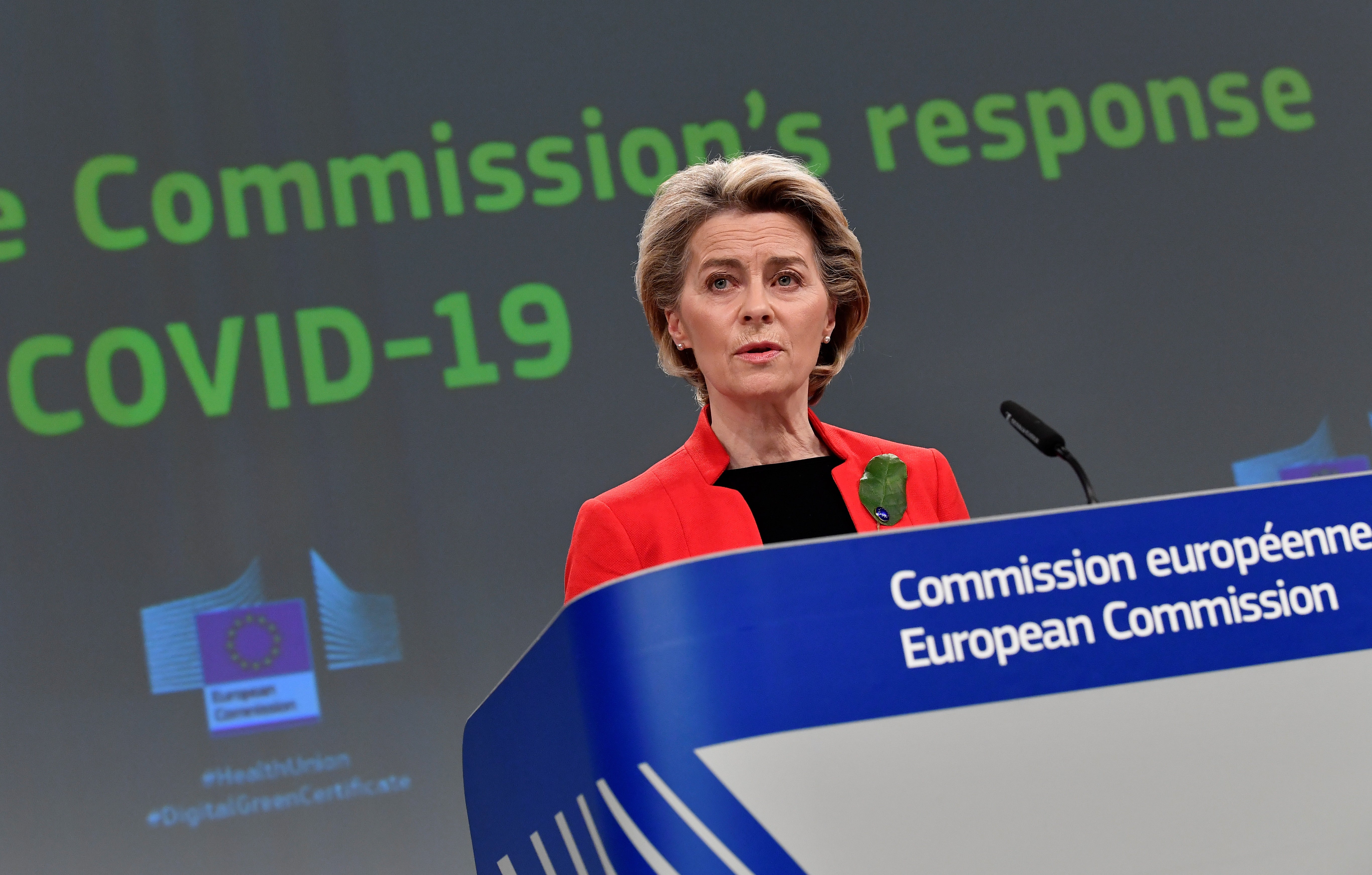Your support helps us to tell the story
From reproductive rights to climate change to Big Tech, The Independent is on the ground when the story is developing. Whether it's investigating the financials of Elon Musk's pro-Trump PAC or producing our latest documentary, 'The A Word', which shines a light on the American women fighting for reproductive rights, we know how important it is to parse out the facts from the messaging.
At such a critical moment in US history, we need reporters on the ground. Your donation allows us to keep sending journalists to speak to both sides of the story.
The Independent is trusted by Americans across the entire political spectrum. And unlike many other quality news outlets, we choose not to lock Americans out of our reporting and analysis with paywalls. We believe quality journalism should be available to everyone, paid for by those who can afford it.
Your support makes all the difference.Labour has backed the government in a row with the EU over vaccines and told Brussels to “calm down” its rhetoric over a potential blockade.
Asked how the UK should respond to the bloc’s warnings, shadow foreign secretary, Lisa Nandy, branded comments by Ursula von der Leyen “deeply, deeply unhelpful”.
“I would urge the European Commission to calm down the language, cool the rhetoric, and let’s try and work together to get through this crisis,” she said, in comments directed at the president of the EU’s executive.
It comes as Conservative defence secretary, Ben Wallace, said any attempt to block Covid-19 vaccine exports to the UK would be “counterproductive” with the EU.
Ms Von der Leyen ramped up the rhetoric at the weekend, saying she was sending a “message to AstraZeneca” that the EU had the power to “forbid” exports.
Read more:
Countries on the other side of the channel are increasingly frustrated that the the British-Swedish manufacturer is not delivering the vaccines it promised them, while furnishing the UK with apparently ample supplies.
The situation has undermined the EU’s vaccine programme, which has also been set back by caution, uncertainty, and misinformation about the vaccines, sometimes at an official level.
Speaking on Sunday, Ireland’s commissioner Mairead McGuinness said no decision had been taken around the possibility of a blockade and that EU leaders would consider the matter at a summit on Thursday.
“European citizens are growing angry and upset at the fact that the vaccine rollout has not happened as rapidly as we had anticipated,” she told the BBC’s Andrew Marr Show.
“Both the EU and the UK have contracts with AstraZeneca, and my understanding is the company is supplying the UK but not the European Union.
“We are supplying the UK with other vaccines, so I think this is just about openness and transparency.”
But the UK minister, Mr Wallace, said: “The grown-up thing would be for the European Commission and some of the European leaders to not indulge in rhetoric, but to recognise the obligations that we all have.
“We will all hold each other to our contracts. Making a vaccine is like baking a cake; we all have different ingredients and the European Commission will know that.
“You pointed out the point about Pfizer. They will know you wouldn’t want to cut off your nose to spite your face.”
Speaking separately on Sky News, Mr Wallace argued that the EU would suffer “severe reputational” damage if it imposed export bans.
“If contracts and undertakings get broken, that is a very damaging thing to happen for a trading bloc which prides itself on the rule of law,” he said.
“It would be counterproductive because the one thing we know about vaccine production and manufacturing is that it is collaborative.
“If we start to unpick that, if the commission were to start to do that, I think they would undermine not only their citizens’ chances of having a proper vaccine programme, but also many other countries around the world with the reputational damage to the EU, I think, they would find very hard to change over the short-term.”

Join our commenting forum
Join thought-provoking conversations, follow other Independent readers and see their replies
Comments